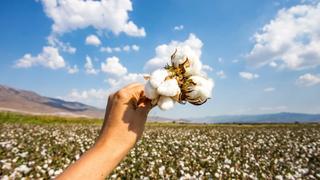The growing presence of dairy analogues — which use cheaper vegetable analogues such as palmolein in the place of real milk fat — is hurting the interests of milk producers.
The dairy industry has raised concerns on the increased penetration of dairy analogues by organised players in off-the-shelf sales and in restaurants.
Most often found in cheese, paneer, khoya, butter and ghee, the dairy analogues are mostly produced from plant processing and create serious implications for not just consumers but also dairy farmers, said industry experts.
The organised market of these categories of dairy products exceeds ₹30,000 crore, and faces a threat from dairy analogues, which are cost-effective due to mechanised manufacturing processes and use of cheap non-milk ingredients.
Consumers can’t easily spot analogues as they are named and portrayed as dairy products. In preparations such as pizzas, cheese is among the costliest components, hence the use of analogues helps increase profit margins.
Cheating consumers
“If a dairy product uses vegetable oil in the place of milk fat, it is still edible, but the consumer is cheated. Mostly the consumers aren’t aware that they are cheated with such analogues,” said Kuldeep Sharma of Suruchi Consultants, a dairy consultant firm.
The Horeca (hotels, restaurants and cafes) segment and quick service restaurants are among the biggest users of dairy analogues, said the experts.
Farmers’ interests
The dairy sector has also raised concerns about the violation of farmers’ interests, as vegetable fats replacing milk results in lower price realisation for farmers.
“Dairy analogues create unhealthy price competition, making it difficult for us to sell our dairy products,” said RS Sodhi, Managing Director, Gujarat Cooperative Milk Marketing Federation (GCMMF), which markets the Amul brand. “This affects the livelihood of dairy farmers because if we sell our products at a low price (on par with the analogues), we will not be able to pay adequate prices to our milk producers.”
“There should be labelling rules to classify the products. Internationally, a dairy product which is not made from milk fat can’t be labelled and sold under the dairy product category. As the Indian market is growing, we are hopeful of such regulations in India, too,” said Suruchi Consultants’ Sharma.
GCMMF has made several representations to the Food Safety and Standards Authority of India (FSSAI) to curb the use of analogues and formulate rules for them.
It has also suggested draft rules for packaging and labelling dairy products with distinct colour differentiation to mark out the use of substitutes.









Comments
Comments have to be in English, and in full sentences. They cannot be abusive or personal. Please abide by our community guidelines for posting your comments.
We have migrated to a new commenting platform. If you are already a registered user of TheHindu Businessline and logged in, you may continue to engage with our articles. If you do not have an account please register and login to post comments. Users can access their older comments by logging into their accounts on Vuukle.